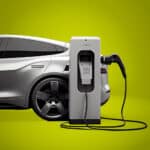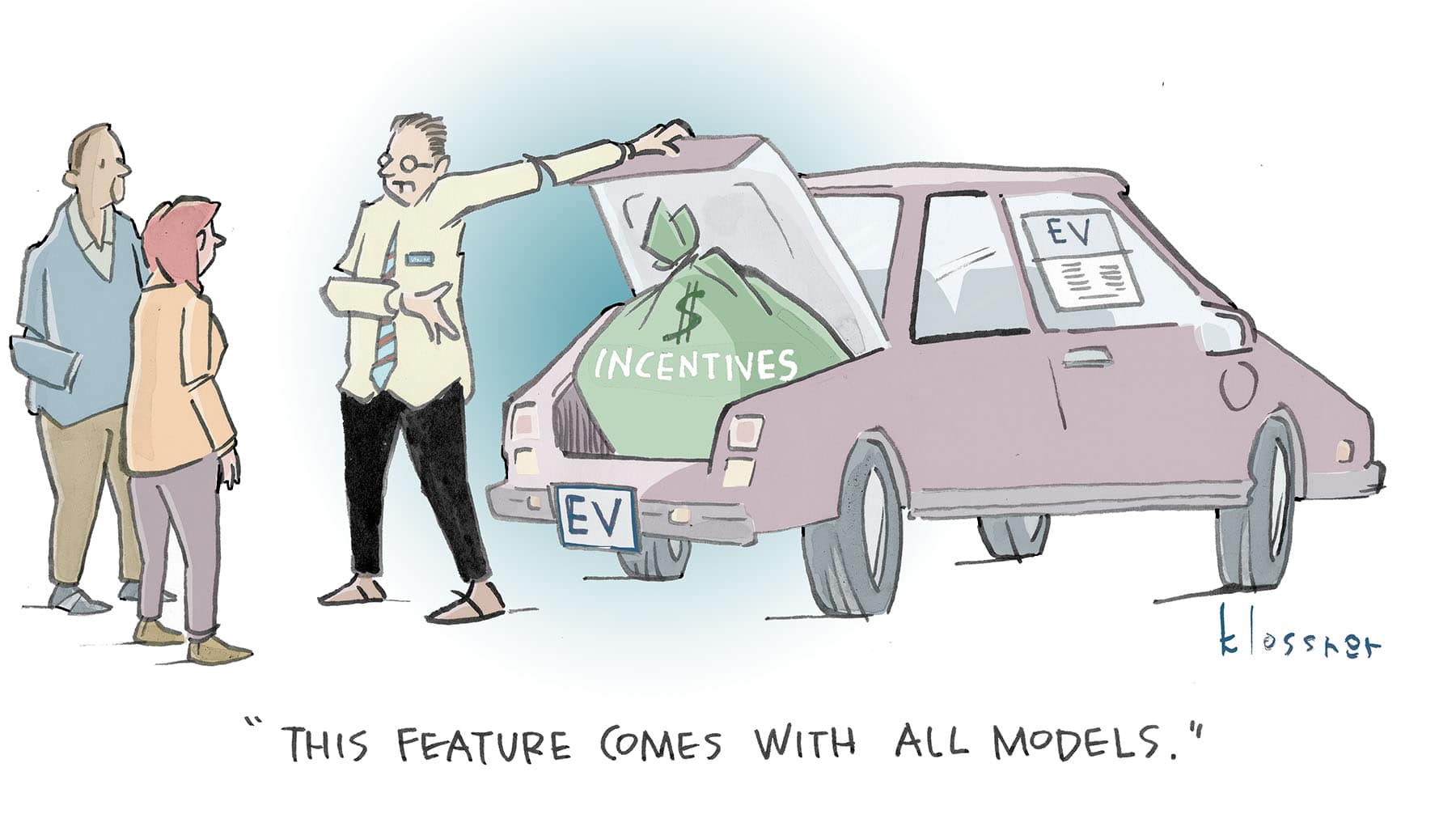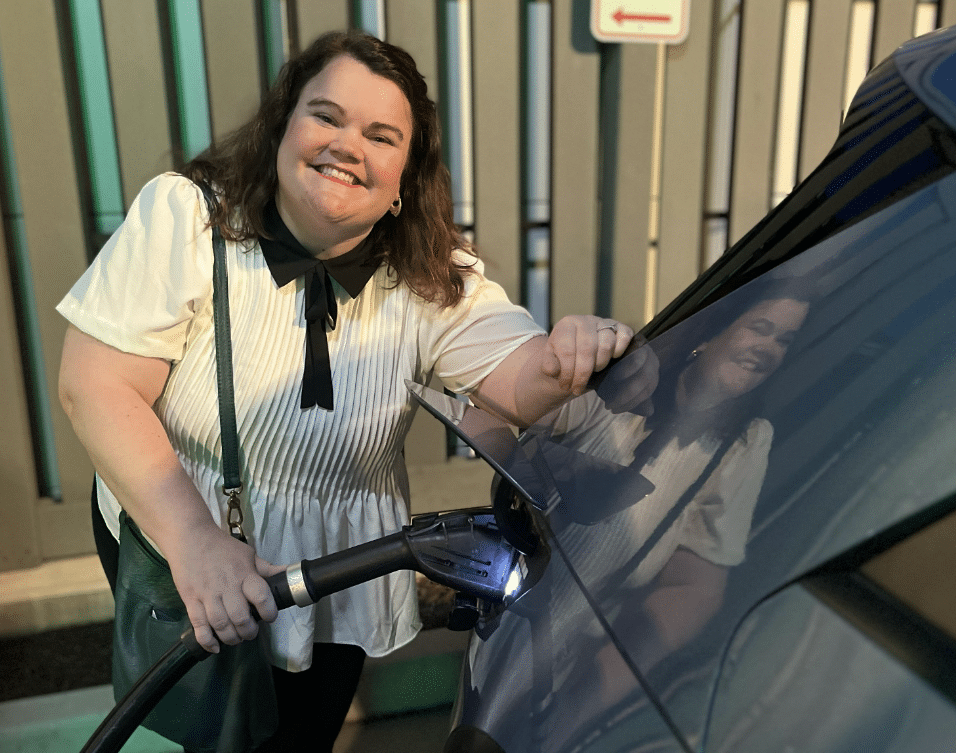This week’s blog comes from the desk of Stuart Gardner, Generation180’s Senior Program Director of Electrify Your Life.
Electric vehicle (EV) sales knocked it out of the park in 2023, reaching over 1 million units sold for the first time. 2024 will be “The year of more” for electric vehicles according to Cox Automotive, as inventory increases, incentives drive interest, and price tags become more manageable. 2024 may turn out to be the best time to buy an EV since pre-pandemic. If you are considering making the switch in 2024, there are some important things to know that can help save you money.
The federal Inflation Reduction Act (IRA) provides incentives up to $7,500 per vehicle to help Americans make the switch from gas to electric. However, savvy shoppers need to keep some things in mind since the IRA includes restrictions such as price caps, income limits, manufacturing location, and batteries. According to the Internal Revenue Service (IRS), the new requirements become stricter in 2024, placing new limits on battery components and critical minerals sourcing.
The goal of the updated rules is to drive US innovation and reduce our dependency on foreign suppliers, while bolstering domestic manufacturing. Although it may seem like additional restrictions are just another layer of bureaucratic red tape, they were put in place to ensure job creation and domestic manufacturing here at home.
As of Jan. 1, the federal government updated its purchase incentive rules to include which vehicles qualify for the tax credit. Only seven models from four manufacturers (Ford, GM, Tesla, and Rivian), plus some plug-in hybrids (PHEVs), now qualify for the full $7,500 credit.
As a result, popular EVs such as the Nissan Leaf, Volkswagen ID. 4, and Ford Mustang Mach-E lose access to the tax credit for now. However, Volkswagen, Nissan, General Motors, and others are working to modify their supply chains and places of manufacturing to meet the new requirements.
But there’s good news, too. Some electric and PHEVs models are still eligible for some portion of the tax credit. Additionally, to help reduce the upfront purchase price, buyers can have the tax credit applied at the point of sale (as a discount at registered dealers) rather than waiting to file for a tax credit next year. Plus, if you plan to lease your next EV, you can also take advantage of the credit on a larger number of EVs.
Even if your favorite EV may be temporarily losing some of its tax credits, there are still many great deals to be had. For example, General Motors is offering incentives of $7,500 on its electric vehicles that lost the tax credit. Look for other manufacturers to announce similar discounts. Additionally, many states offer additional incentives.
Federal incentives are not the only changes coming in 2024, the National Electric Vehicle Infrastructure (NEVI) program continues to roll out public fast chargers across the country. NEVI works to reduce a common barrier to EV ownership (where to charge) by installing public fast chargers every 50 miles along major travel corridors across the county.
And let’s not forget new products with more EVs coming to market and offering greater choice based on your lifestyle. Want an electric pickup truck? Check out the Chevrolet Silverado EV or Ram 1500 REV. Need a SUV for your family? How about the all new Chevrolet Equinox EV, Hyundai Ioniq 7, or Honda Prologue. Perhaps retro is your thing, you can’t do better than the Volkswagen ID. Buzz.
Whichever EV you choose, you will still benefit from smooth, quiet, and nearly instant acceleration, zero tailpipe pollution, and savings on gas and maintenance costs. In fact, Consumer Reports found owning an EV will save the typical driver $6,000 to $12,000 over the life of the vehicle, compared to owning a comparable gas-powered vehicle.
So this year, make a resolution that will have long term impact on your pocketbook, your environment, and your satisfaction. In fact, overall satisfaction with EVs is very high with 80% of EV owners likely to buy an EV again based on ease of charging at home, driving enjoyment, vehicle quality and reliability, and the low cost of ownership.
Ready to learn more? Ask a friend, neighbor, or colleague to go for a ride in their EV, or take a test drive at a local dealership. Get to know why more and more people are making the switch to electric. And if you already drive an EV (well done!), volunteer to drive to lunch one day and help inspire your co-workers, friends, and loved ones to drive electric, too. Even better, join Generation180’s EV Ambassador Network.
In the meantime, if you have questions about EVs and making the switch, Generation180 is here to support you. Sign the Going Electric Pledge and join one of our upcoming virtual events to learn more.
Happy New Year!















